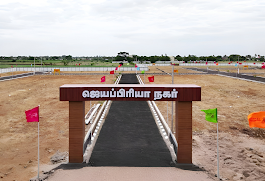In India, family disputes about inheritance and property rights happen often. Many people wonder, “Can a grandson claim his grandfather’s property?”
The answer to this question depends on how the property was acquired. It could be through inheritance, self-acquisition, or succession laws. In this article, we will explore what rights an Indian grandson has over his grandfather’s assets under Indian law.

Can Grandson Claim Grandfather Property
A person’s right to claim their grandfather’s property depends mainly on two things.
- Nature of the Property – “Whether the source is from ancestors or learned by oneself.”
- Applicable Personal Law – The Indian Succession Act, Muslim Law, and Christian Succession Act are a few examples.
- If his father’s family owns the property, the grandson can usually inherit it. This is according to the Hindu Succession Act of 1956.
- Grandsons usually cannot claim property their grandfathers bought during their lives unless it is in the will.
Key Points:
- Grandsons receive family property when they are born.
- Grandsons do not automatically get property that their grandfathers acquired while they were alive.
- Religion and a strong will can affect a person’s rights in different ways.
Can Grandson Claim Grandfather Property After Death
When your grandfather passes away, the inheritance rules depend on whether he wrote a will.
1. If the Grandfather Died Without a Will (Intestate):
- If the property is ancestral, a share automatically goes to the grandsons as their inheritance.
- If the property was acquired by itself, its distribution will follow the succession laws of the grandfather’s religion. For example, under Hindu law, it will go to Class I heirs, which include the wife, sons, and daughters. A grandson can inherit only if his father, the grandfather’s son, has already died.
2. If the Grandfather Left a Will:
- Property will be shared based on your will, no matter where it comes from. However, ancestral assets usually follow coparcener rights.
Can Grandson Claim Maternal Grandfather Property
Inheritance rights for property owned by a maternal grandfather can differ a lot.
- Under the Hindu Succession Law, grandchildren do not inherit their maternal grandfather’s ancestral property by birthright.
- Property gained through self-acquisition is seen as private property of the maternal grandfather. His grandson can inherit it only through a will or by legal succession from his deceased mother, if she is his heir.

Can Grandson Claim Grandfather Property in India – Contact Number +91-9654852919
Key Insight:
An heir cannot claim their maternal grandfather’s property just by being born. Their claim depends on how much property their mother has and her rights to inherit it.
Can Grandson Claim Rights in Grandfather’s Property
A grandson’s claim to his grandfather’s property depends on specific religious rules:
1. Hindu Law (Hindu Succession Act, 1956):
- If the property belongs to his grandparent(s), their grandson can claim it by birthright.
- If a property was bought by a grandfather, his grandson cannot claim it while he is alive. After the grandfather dies, the grandson can inherit the property. This is possible if there are no living siblings, such as a father.
2. Muslim Law:
- Islamic Personal Law does not recognise the right to inherit.
- Grandsons can only inherit when their fathers die, according to Islamic inheritance rules.
3. Christian & Parsi Law:
- There is no idea of ancestral property.
- Grandchildren can inherit property if their grandfather named them in his will. If not, the property goes to them through intestate succession.
Can Grandfather Sell Ancestral Property
One common question is whether grandfathers can sell or give away family properties:
- Uninherited property cannot be sold without getting approval from all co-owners. These co-owners can include children, daughters, and sometimes grandsons.
- If the grandfather tries to sell it without getting permission from the other co-shareholders, this sale could be challenged in court. His grandson or other heirs could take action.
If the grandfather bought the property on his own, he can sell, gift, or transfer it without anyone’s permission.
Differences Between Ancestral and Self-Acquired Property
| Feature | Ancestral Property | Self-Acquired Property |
|---|---|---|
| Definition | Property can be passed down through four generations without splitting the title. | “Property given as a gift or bought for someone.” |
| Right of Grandson | The grandson has a right by birth to inherit. | There was no disagreement between the grandfather and grandson while he was alive. |
| Transfer Rights | Cannot be sold without the consent of the coparceners first. | Grandfather can sell or give away things as he likes. |
| Inheritance | Property automatically goes to new heirs when they are born. | Transfers Based on Will or Inheritance Law |
Legal Steps for Grandson to Claim Property
If a grandson wants to claim his share of his grandfather’s property:
- Verify the Nature of Property: Find out if it is genetic or acquired by oneself.
- Obtain Legal Documents: Gather the property title deed, death certificate, and family lineage documents.
- File for Partition Suit (if required): If the property is ancestral and not divided, the grandson can ask for a partition to get his share.
- Consult a Property Lawyer: Legal help makes sure that filings are done correctly and that succession laws are followed.

Rights of Grandson in Case of Partition
If the family property has been split:
- Each heir, including grandchildren if their father has died, gets an equal share.
- Once divided, each share becomes its own property. The owner can will or sell it freely.
Tips to Avoid Property Disputes
- “Keep clear records of ownership and succession.”
- Make sure your will is registered and updated when needed.
- Talking with family members can help prevent misunderstandings.
- Think about using legal mediation if you are going through a divorce or have property disputes.
📝 FAQ Section
1. Can a grandson claim his grandfather’s property in India?
Yes, under Hindu law, a grandson can inherit his grandfather’s ancestral property at birth. However, he cannot claim any self-acquired property while his grandfather is alive.
2. Can a grandson claim grandfather’s property after his death?
If the property is ancestral, the grandson automatically gets his share. For self-acquired property, they only inherit if their father has died or if his will includes them.
3. Can a grandson claim his maternal grandfather’s property?
No, a grandson does not inherit property directly from his maternal grandfather. He can only claim this right through inheritance or a will.
4. Can a grandfather sell ancestral property without the grandson’s consent?
No grandfather can sell family property without getting approval from all legal co-owners. This includes sons, daughters, and sometimes grandsons.
5. What is the difference between ancestral and self-acquired property?
Ancestral property: Four generations have helped pass it down. Now, the grandson has the right to own it.
Self-acquired property: Grandpa can earn or buy his gift. He can then sell it or give it away to those he cares for.
6. How can a grandson claim his share in ancestral property?
Grandsons can file a partition suit in court. They need to gather important documents first. These include title deeds, death certificates, and proof of family lineage. This helps them claim their shares of inheritance.
7. What happens if the grandfather leaves a will excluding the grandson?
If a property is ancestral, a will cannot legally exclude a grandchild’s birthright. If grandfathers acquire property on their own, the law allows this exemption.
8. Which law governs the grandson’s inheritance rights?
Hindus use the Hindu Succession Act of 1956 for inheritance. Other religious groups may follow different laws, like Muslim Law or the Christian Succession Act.
Conclusion – Can Grandson Claim Grandfather Property
To summarize:
- Under Hindu law, a grandson can inherit ancestral property just by being born.
- A grandson can only claim property he earned from his grandfather after the grandfather has passed away.
- Maternal grandsons do not have direct rights to properties owned by their mother if she leaves them in her will.
- An inheritance cannot be sold unless all co-owners agree.
Understanding these legal principles can help stop family arguments. It also ensures fair property distribution under Indian inheritance laws.




Join The Discussion